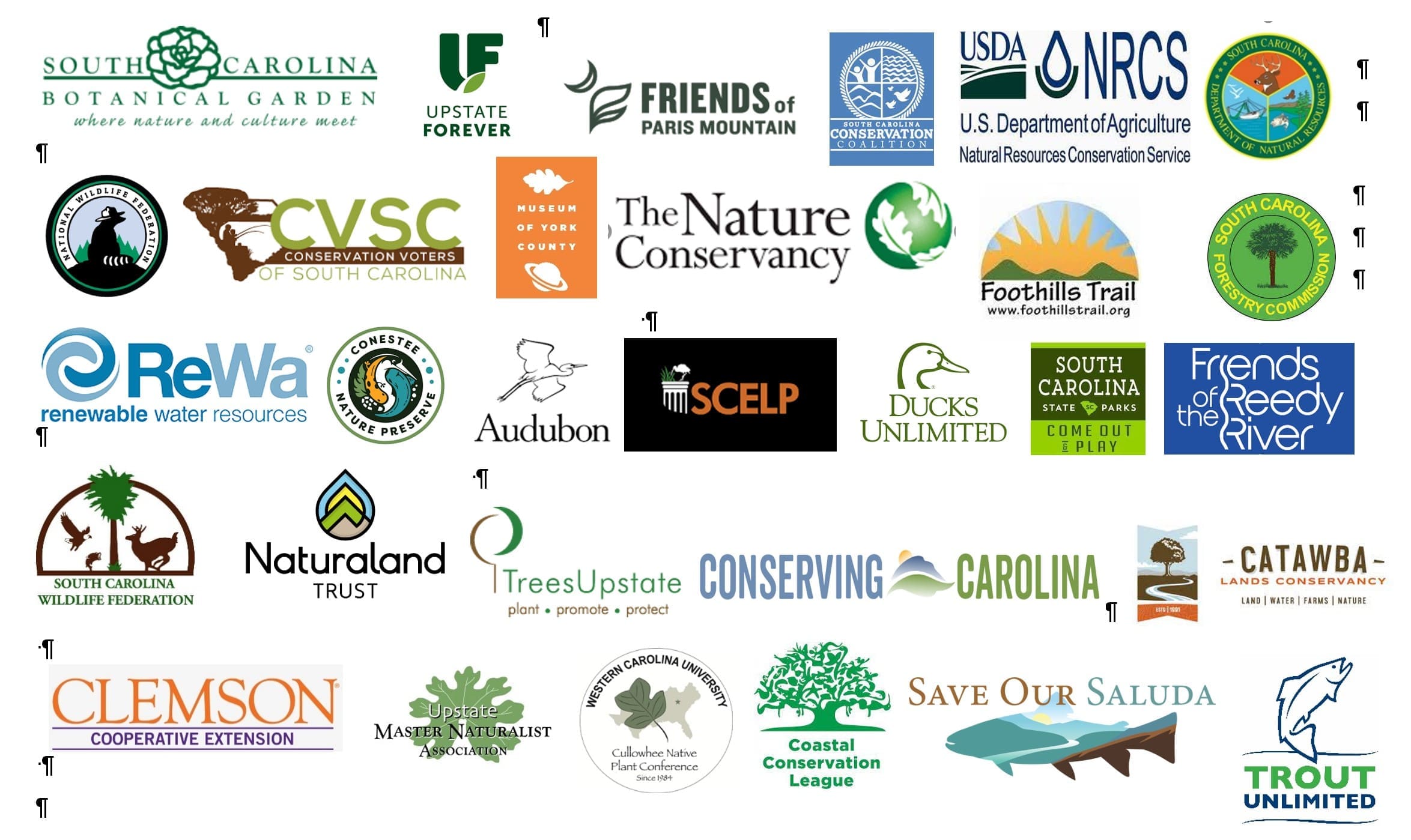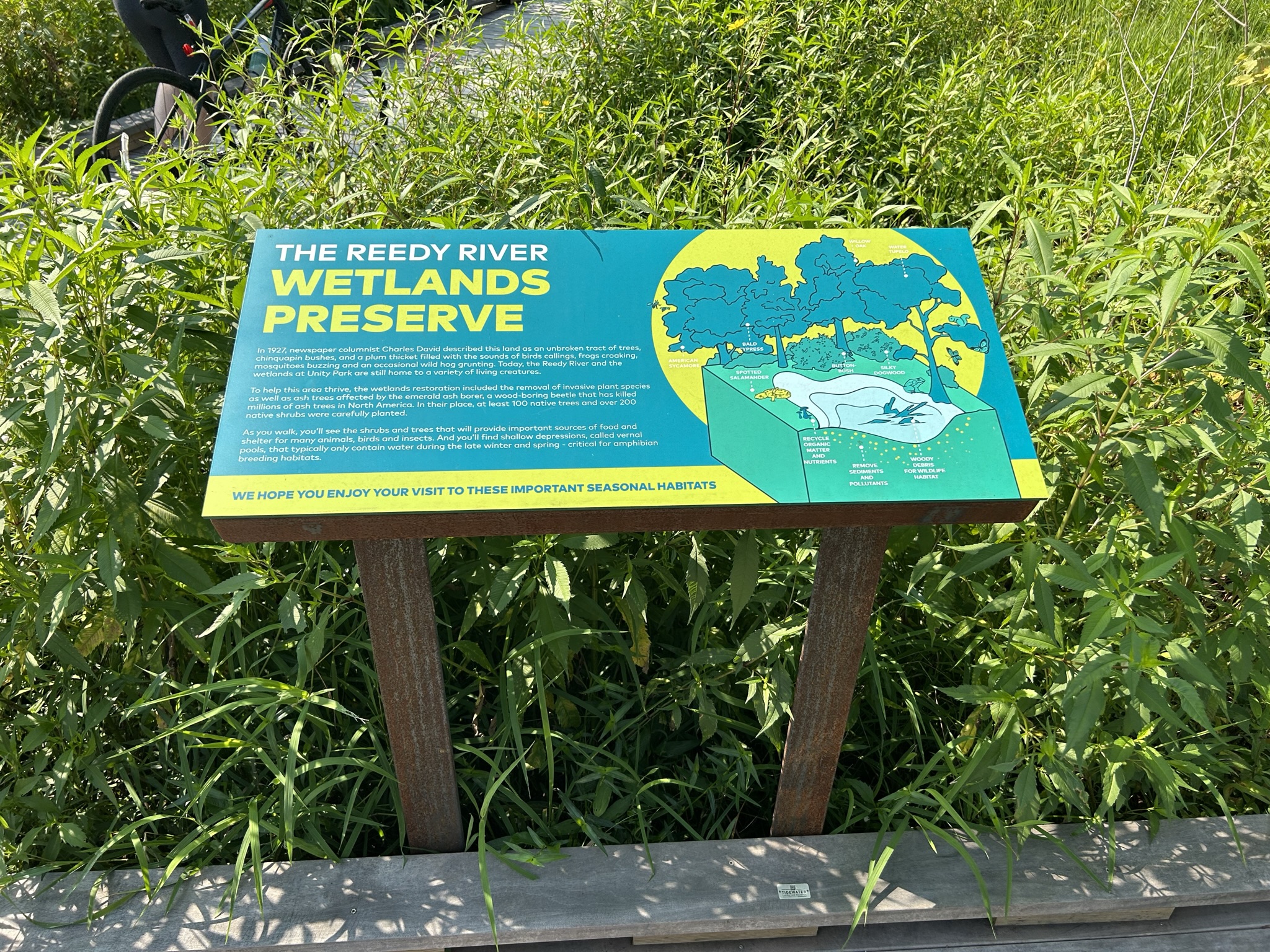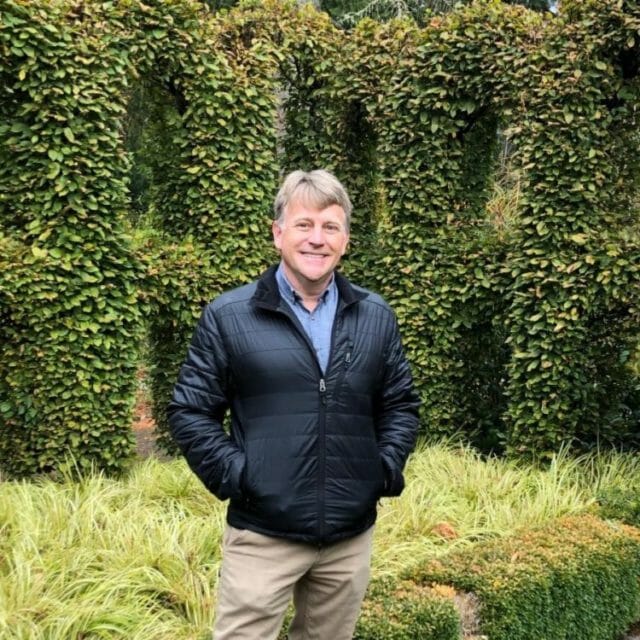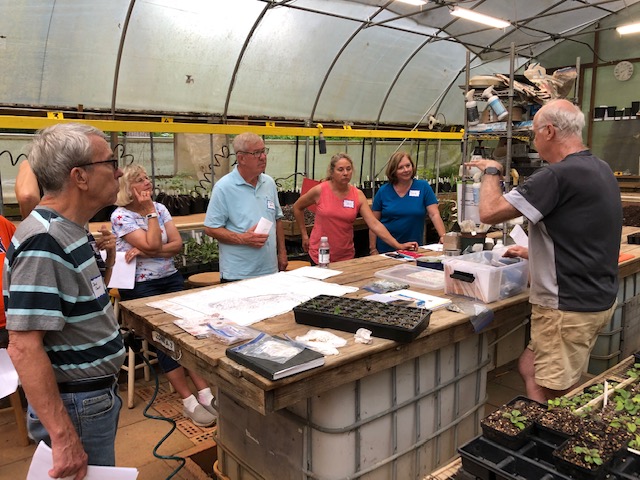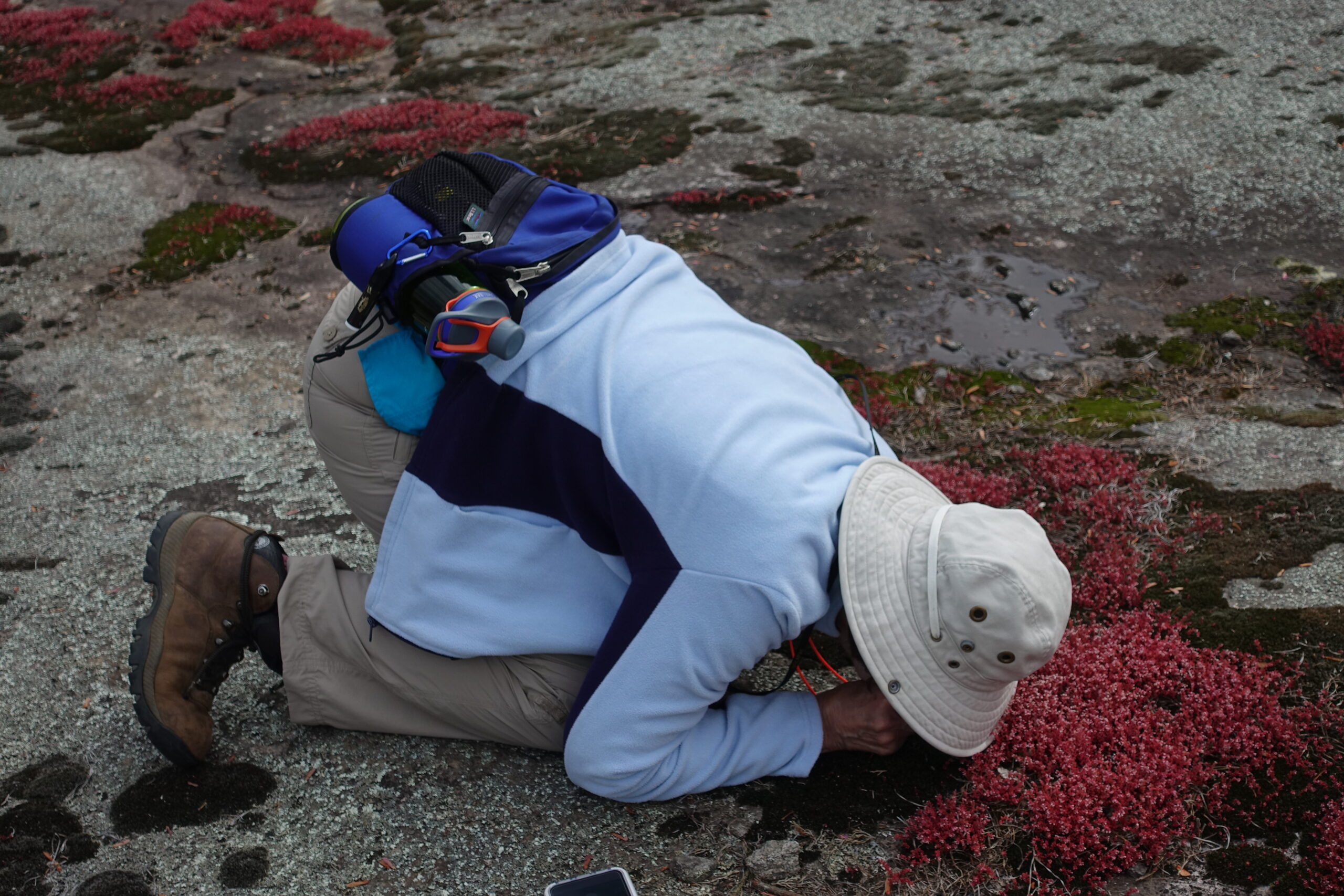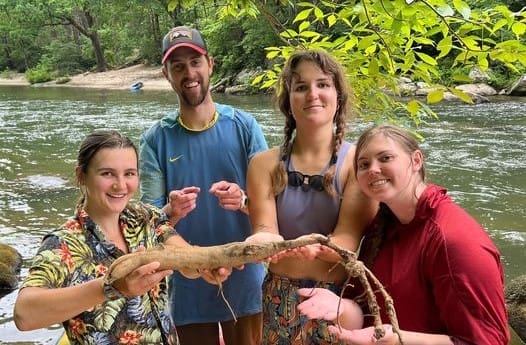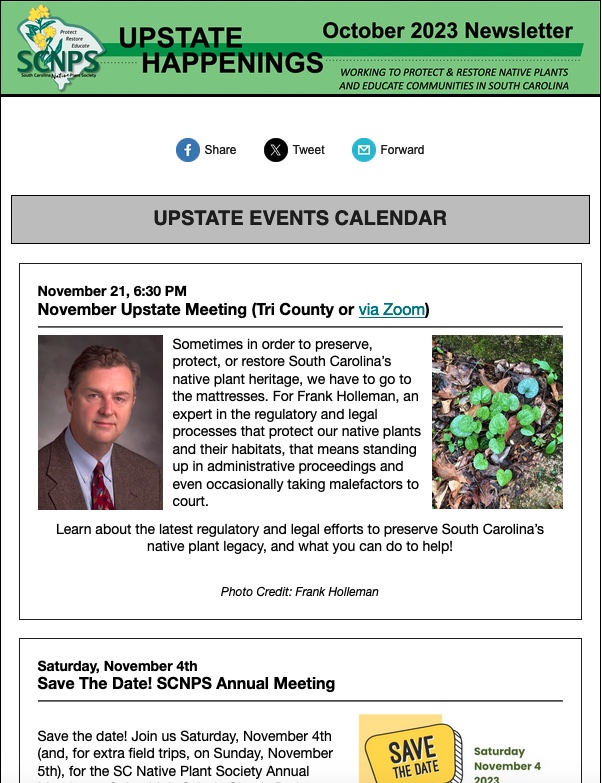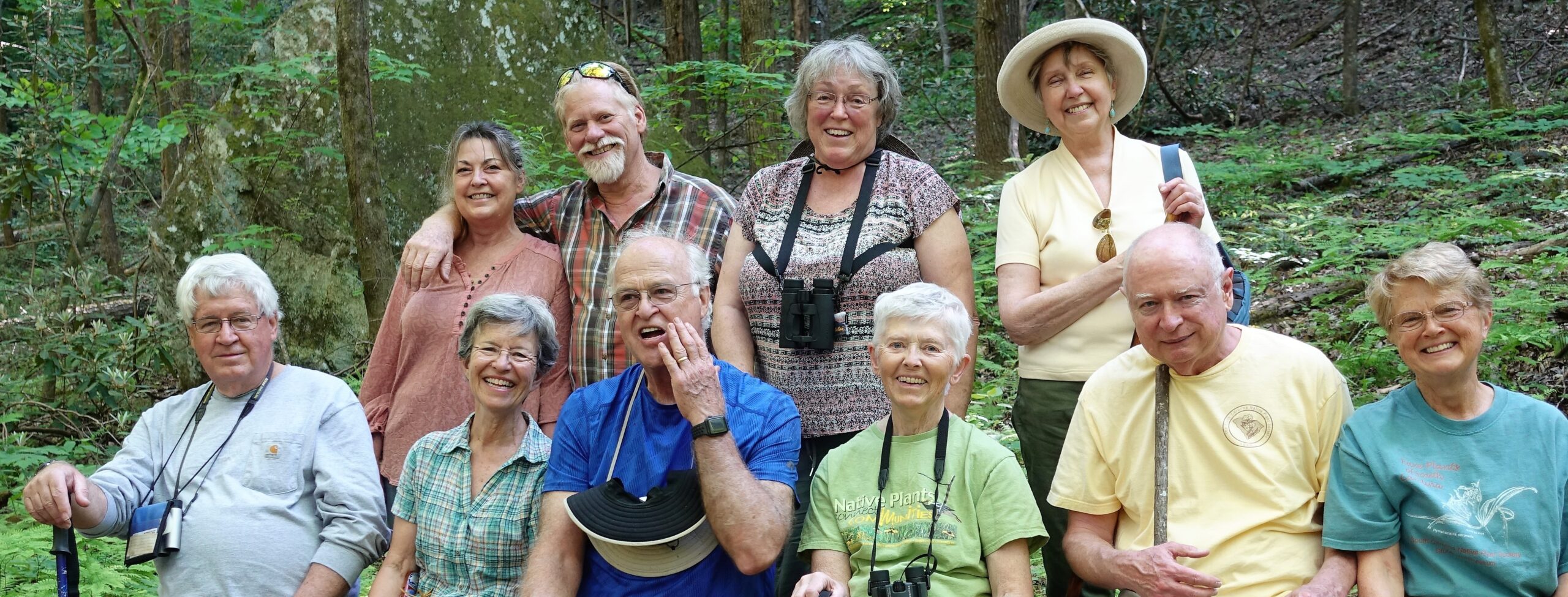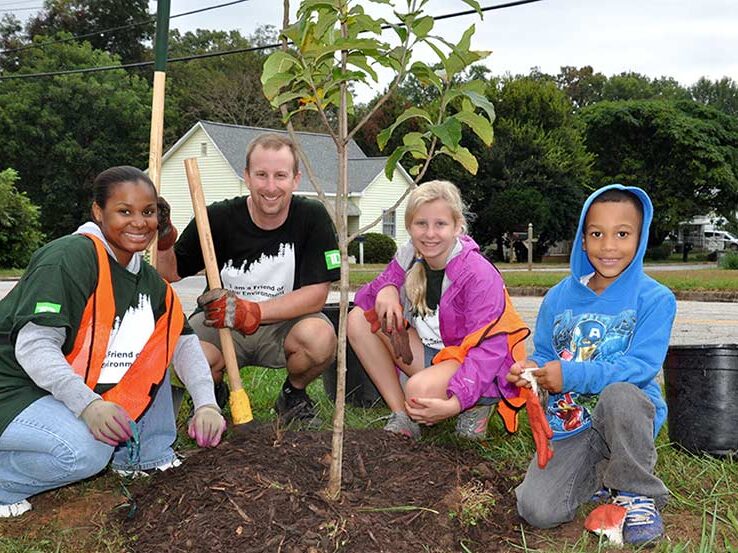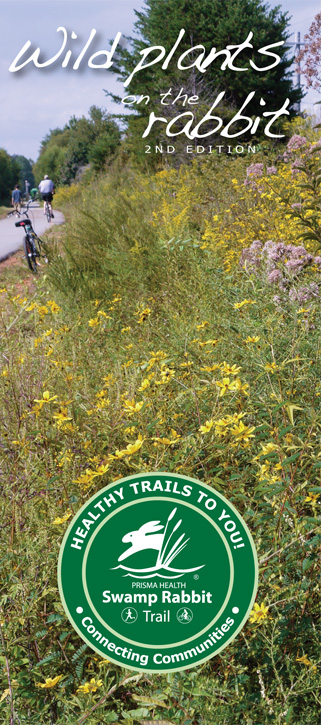Native Plants in the Blue Ridge and Piedmont Prairie Ecoregions
About the Upstate Chapter
Encompassing portions of both the mountainous Blue Ridge and Piedmont prairie ecoregions, the Upstate is the most biologically diverse area in South Carolina and one of the most diverse in the world.
Founded in 2003 with more than 500 members, the Upstate Chapter is the oldest, largest, and one of the most dynamic chapters in the state.
The Upstate Chapter includes members from Abbeville, Anderson, Cherokee, Greenville, Laurens, Oconee, Pickens, and Spartanburg counties, though everyone from anywhere in the state (and beyond!) is welcome to join our events.
Regular activities include monthly lectures (in-person and via Zoom), frequent field trips, plant rescues, propagation workshops, restoration workdays, invasive species removal projects, and more.
The chapter also manages the Upstate Native Nursery (UNN) where an all-volunteer crew propagates a wide variety of native plants (many of which can’t be found anywhere else). Through twice-yearly plant sales (held in-person and online), the UNN provides more than 4,000 plants annually to Society members and the general public.
Monthly Meetings
The Upstate Monthly Lecture Series is free and open to the public, and meets on the third Tuesday of each month at the Kroc Center in Greenville. Come at 6:30 p.m. for socializing and stay for the 7:00 p.m. lecture from some of the top-rated experts in ecology, biology, environmental science, sustainability, and more.
Upstate Native Nursery
The Upstate Chapter’s Native Nursery (UNN) is a one-of-a-kind, all-volunteer native greenhouse and nursery operation.
We propagate and nurture over 4,000 a year native plants native to the Upstate to support our Mission.
The UNN offers unique opportunities for volunteers to learn and contribute in a fun environment. Volunteer work includes a variety of tasks to support nursery operations including: watering, potting and weeding.
Email us if you’d like to volunteer.
Field Trips & Projects
Meet like-minded people to learn and enjoy the outdoors.
Our field trips are led by expert members and guest leaders, offering activities such as:
- Hikes
- Boat tours
- Seed Collections
- Plant Rescues
- Invasive eradication
- Plant surveys
Our field trips are usually free, open to the public, and may last full or half days. They welcome both experienced and novice participants, with difficulty levels ranging from easy to moderately strenuous.
Watch our calendar for upcoming field trips.
Community Grants
Our Upstate Community Grants Program supports local projects that align with our mission to promote and protect native plants. Grants are awarded to eligible projects that focus on native plantings, invasive species removal, and community education across the Upstate region.
Publicity & Social Media
The Upstate Happenings is a monthly email newsletter that offers feature stories about native plants and biodiversity in the Upstate as well as news, upcoming events, and volunteer opportunities.
Members are automatically subscribed. Non-members are welcome to subscribe!
You can also follow us on Facebook, Instagram, and YouTube by clicking on those links at the bottom of this page!
Upstate Members at Green Mountain Preserve
Interested in Becoming a Member?
Members get the opportunity to be the first to sign up for field trips, and early access to plant sales. As a member, you will be an integral part of an organization that plays a critical role in protecting and preserving our state’s natural habitats. SCNPS is an advocate with a strong record across the state for the preservation and restoration of sustainable landscapes that support the life of not just essential flora and fauna, but of all of us. We are in the field, in courtrooms, and everywhere in between, and the stronger our membership, the louder our voice.
South Carolina supports a rich and diverse collection of plant life, partly because of its high rainfall and the variety of physiographic regions within its borders.
The southern Appalachians, considered one of the most biologically diverse regions of the temperate world, include the mountains of our northwest corner. Many species are endemic to this region and found nowhere else in the world. The rolling foothills of our Piedmont region were once home to “Piedmont prairies” with a plant palette similar to that of Midwestern prairies.
However, much of this land has been used and abused since the 1700s, the mountains timbered, the rich soil of its gentle foothills eroded and exhausted by cotton, the rivers polluted by the mills and industries which gravitated to their banks.
Nature is resilient. Over the years, the forests began to grow back. The soil lost downstream can never be recovered, but life stored deep in the seedbank continues to emerge. Our citizenry has worked to clean up the waters.
- Where the Trail is crisscrossed by utility lines, prairie plants emerge: Indian-hemp (Apocynum cannabinum), Splitbeard Bluestem (Andropogon ternarius), a multitude of Sunflowers, Asters and Goldenrods.
- Where the river spreads out into floodplains or beavers do their work, wetland plants thrive: Cardinal Flower (Lobelia cardinalis), Spotted Jewelweed (Impatiens capensis), Allegheny Monkey-flower (Mimulus ringens), even the globally rare, federally protected Bunched Arrowhead (Sagittaria fasciculata)!
But backyards can also become dumping grounds, and the Swamp Rabbit Trail exposes heretofore hidden (and ignored) infestations of invasive plants.
The Greenville Swamp Rabbit Trail follows the path of an old short-line railroad that carried freight (often timber) from the mountains above Marietta into Greenville. Some of the Trail also parallels the Reedy River. It’s a delightful glimpse into our communal “backyard” — where the plants have been left to fend for themselves.
The South Carolina Native Plant Society has been compiling a list of almost 400 wild species growing along the Swamp Rabbit Trail. Many are featured in our “Wild Plants on the Rabbit” Guide.
If you are looking for more information about a specific plant, check out our SC Native Plant Directory, the Native Plants of the Carolinas & Georgia Directory, or submit your photos via our form.
You can also grab a printed copy of the Wild Plants on the Rabbit guide at:
- Janice’s BBQ Hut – Geer Hwy (Hwy 276) just below River Falls Rd., Cleveland
- Sunrift Adventures – 1 Center St., Travelers Rest
- Swamp Rabbit Cafe & Grocery – 205 Cedar Lane Rd., Greenville
- Tandem Creperie & Coffeehouse – 2 South Main St., Travelers Rest
- Travelers Rest History Museum – 3 Edwards St., Travelers Rest
- Travelers Rest City Hall – 125 Trailblazer Dr., Travelers Rest
A big thank you to our sponsors, who help make projects like The Swamp Rabbit Trail possible!
